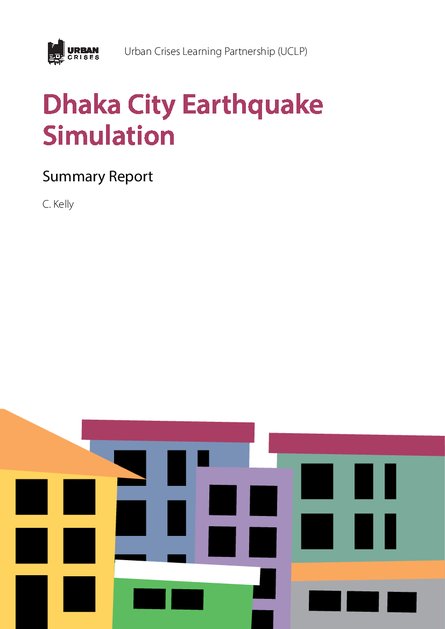
The Urban Crises Learning Partnership (UCLP) was a two-year (2015–17) learning initiative aimed at improving humanitarian preparedness and response in urban areas. It was a partnership between Habitat for Humanity GB, Oxfam GB, the Overseas Development Institute (ODI), and University College London (UCL).
The project carried out primary research in Haiti and Bangladesh through the National Offices of Habitat for Humanity in both countries, and Oxfam in Bangladesh. The UCLP had two primary objectives: to improve the way stakeholders in urban crises engage with each other to form new partnerships and make better decisions; and to improve disaster preparedness and response in urban areas by developing, testing, and disseminating new approaches to the formation of these relationships and systems.
The project addressed these objectives by exploring four related themes: the role of actors who are not part of the formal national or international humanitarian system; accountability to affected populations (AAP); urban systems; and coordinating urban disaster preparedness. This paper by independent consultant Charles Kelly focuses on the last of these themes: coordinating urban disaster preparedness.
The report describes the process of organising and conducting an earthquake simulation in the city of Dhaka in Bangladesh, an event that represented a key activity for the UCLP project. The simulation was conducted in order to assess the level of readiness of a range of actors for an event that occurs on average every century. The last major earthquake in Dhaka happened more than a hundred years ago, when the population was a tiny fraction of today’s estimated 16–18 million people. It was intended that the simulation should illuminate gaps in coordination, delivery mechanisms, and partnerships, which in turn would aid in further planning for a large-scale event.
Links
Resource collections
- Earthquakes
- Learning from crises
- Topics
- UN Habitat - Urban Response Collection
- Urban Response - Urban Crisis Preparedness and Risk Reduction
- Urban Response Collection - Community Engagement and Social Cohesion
- Urban Response Collection - Economic Recovery
- Urban Response Collection - Environment and Climate Change
- Urban Response Collection - Housing, Land and Property
- Urban Response Collection - Urban Crisis Response, Recovery and Reconstruction
- Urban Response Collection - Urban Resilience
